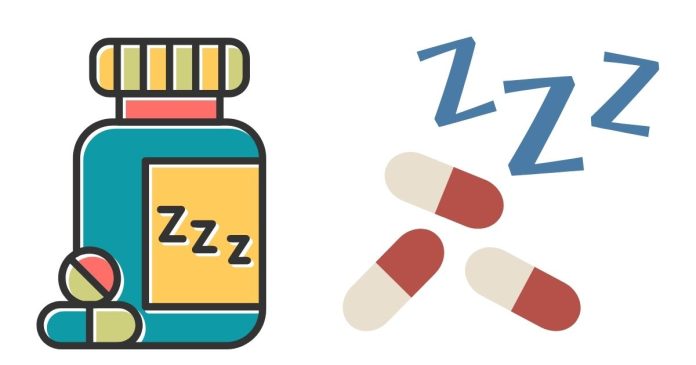Getting quality sleep is essential for overall health and well-being. However, millions of people struggle with insomnia and other sleep disorders, often turning to sleeping pills for relief. If you’re considering using sleeping aids, it’s essential to understand your options. Here’s a guide to the top 10 sleeping pills, their benefits, risks, and what you should know before taking them.
1. Ambien (Zolpidem)
Ambien is a popular prescription medication for short-term treatment of insomnia. It helps you fall asleep quickly and is often prescribed for those with difficulty initiating sleep.
- Benefits: Fast-acting, promotes deep sleep.
- Risks: Potential for dependence, memory issues, and next-day drowsiness.
2. Lunesta (Eszopiclone)
Lunesta is effective for both sleep onset and staying asleep throughout the night.
- Benefits: Longer-lasting effects than some other sleep aids.
- Risks: Metallic taste, risk of dependency, and impaired alertness.
3. Sonata (Zaleplon)
Sonata is ideal for people who have trouble falling asleep but can stay asleep once they do.
- Benefits: Minimal risk of next-day drowsiness due to its short half-life.
- Risks: May not help with staying asleep, potential for misuse.
4. Rozerem (Ramelteon)
This is a melatonin receptor agonist that mimics your body’s natural sleep hormone.
- Benefits: Non-habit forming, good for long-term use.
- Risks: May not work as effectively for severe insomnia.
5. Belsomra (Suvorexant)
Belsomra works by blocking the orexin system, which regulates wakefulness.
- Benefits: Helps with both falling and staying asleep.
- Risks: Potential for next-day drowsiness and unusual dreams.
6. Doxepin (Silenor)
Originally an antidepressant, Doxepin is effective for sleep maintenance.
- Benefits: Non-sedative, effective for staying asleep.
- Risks: Dry mouth, potential interactions with other medications.
7. Trazodone
Another antidepressant used off-label for insomnia, Trazodone is commonly prescribed for sleep issues.
- Benefits: Helps with sleep and anxiety, low risk of dependency.
- Risks: Grogginess, dizziness, and dry mouth.
8. Melatonin Supplements
Melatonin is a natural hormone that regulates the sleep-wake cycle. Over-the-counter melatonin supplements are widely used for insomnia.
- Benefits: Non-addictive, suitable for jet lag and circadian rhythm disorders.
- Risks: Effectiveness varies, potential for vivid dreams.
9. Diphenhydramine (Benadryl)
An over-the-counter antihistamine, Diphenhydramine is often used as a sleep aid.
- Benefits: Readily available, effective for occasional use.
- Risks: Grogginess, dry mouth, and tolerance buildup with long-term use.
10. Valerian Root
A natural herbal remedy, valerian root is believed to have sedative properties.
- Benefits: Non-addictive, widely available as a supplement.
- Risks: Limited scientific evidence, potential for mild side effects like headaches.
Key Considerations Before Using Sleeping Pills
- Consult a Doctor: Always discuss with a healthcare provider before starting any sleep aid, especially if you have underlying health conditions or take other medications.
- Short-Term Use: Most sleeping pills are designed for short-term use to avoid dependence and tolerance.
- Lifestyle Changes: Incorporate healthy sleep habits, such as maintaining a consistent bedtime, avoiding caffeine, and creating a comfortable sleep environment.
While sleeping pills can provide temporary relief for sleep problems, they are not a cure for chronic insomnia or other sleep disorders. Understanding the benefits and risks of these medications is crucial to making an informed decision. Always prioritize non-pharmacological approaches and seek medical advice when needed.


